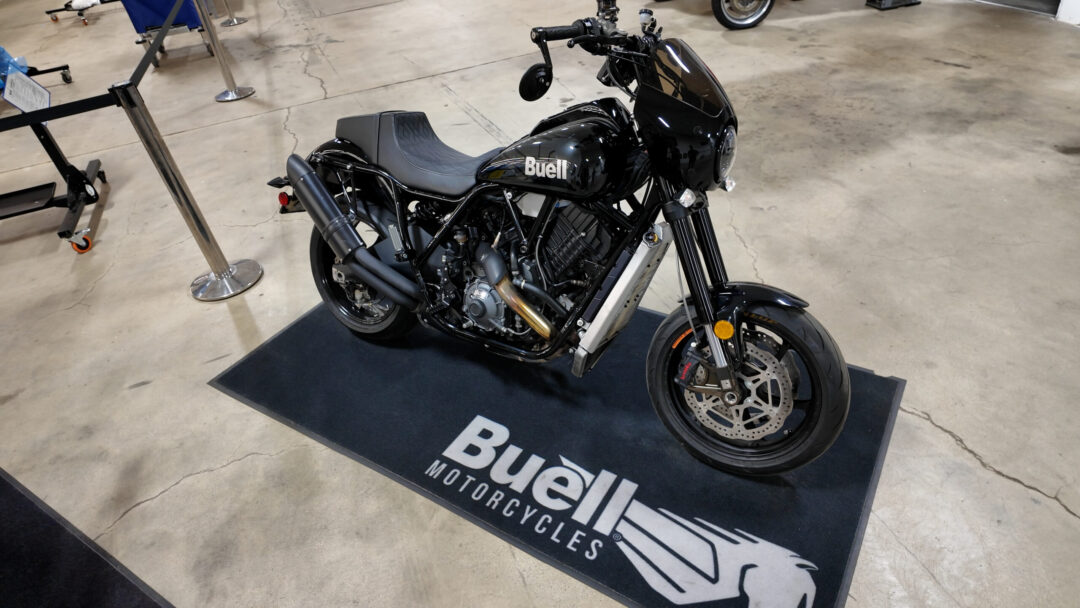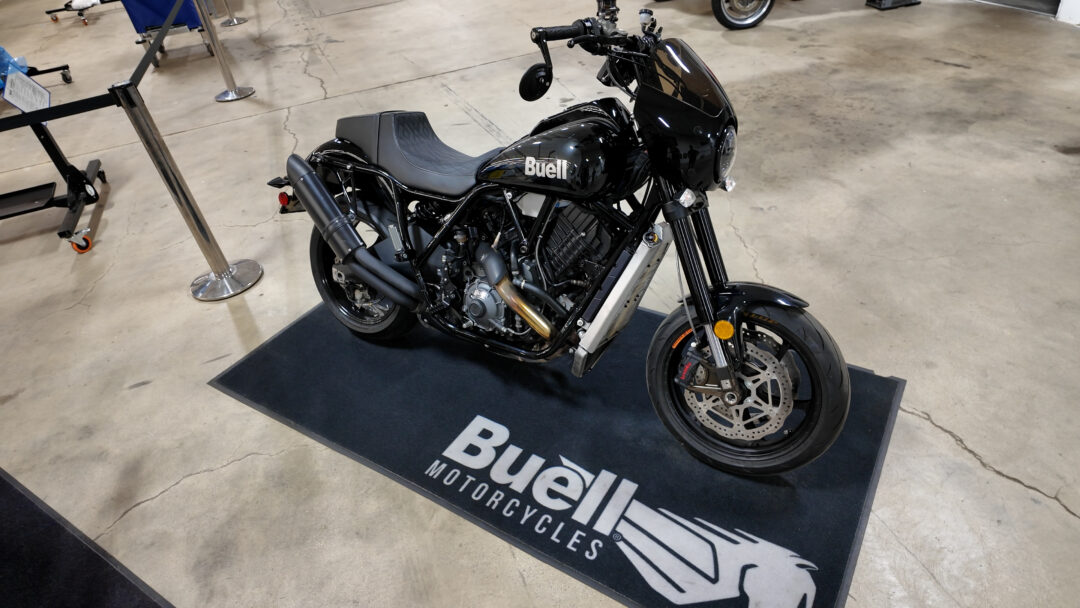There’s something special happening in Michigan. At Buell Motorcycles, a legendary American brand is being reborn, not just as a motorcycle manufacturer, but as a showcase for modern lean manufacturing done right.
We recently had the privilege of touring their facility, and what Tom witnessed was far more than an assembly line. It was a masterclass in how to scale production intelligently, combining time-tested lean principles with cutting-edge digital tools to tackle one of manufacturing’s toughest challenges: growing from 2 motorcycles per day to 50.
The Super Cruiser production line tells a compelling story about American manufacturing’s resurgence.
From engine casings to frames, critical components are being brought back to domestic soil. But what really caught my attention wasn’t just the “Made in USA” story—it was how they’re building the operational foundation to make that promise sustainable.
Take a walk through the facility in our video, where we see Kanban cards on inventory bins, visual management boards tracking daily tasks, and QR codes on every workstation linking to digital standard operating procedures. This isn’t your grandfather’s motorcycle factory. It’s a blueprint for how American manufacturing can compete in the 21st century.
Tour Breakdown
1. Digital SOPs Eliminate Friction in Rapid Development
One of the most impressive implementations at Buell is their use of QR code-accessible digital SOPs at every workstation. Here’s why this matters:
- The Problem They Solved: When you’re scaling production 25x and simultaneously refining your processes, printed procedures become obsolete almost immediately. Every process improvement meant reprinting, redistributing, and managing version control across the facility.
- Their Solution: By deploying GembaDocs with QR codes at each station, workers always access the latest version. When the engineering team updates a procedure, it’s instantly available across the entire facility. No printing. No confusion. No working from outdated instructions.
- The Impact: This eliminates a massive source of friction in continuous improvement. Teams can iterate on processes daily without the administrative overhead of document control. For a growing company, this is transformative.
2. Onboarding at Scale Requires Systematic Documentation
Buell faces a challenge common to growing manufacturers: they need to rapidly onboard new team members while maintaining quality standards. Their approach is methodical:
- 500+ documented procedures and Kanbans covering everything from bearing purchasing to engine testing
- Step-by-step visual work instructions for complex processes like engine case assembly
- Standardized training paths that ensure consistency across all new hires
When you’re building two bikes per day, tribal knowledge might work. At 50 bikes per day, you need systems. Buell is building those systems now, before they scale, which is the smart play.

3. Visual Management Creates Transparency
The facility showcases excellent visual management practices:
- Kanban boards with red/green status cards for inventory management
- Morning meeting boards with daily, weekly, and monthly task tracking
- Inventory transaction stations with clear protocols for card placement
- Work area organization including 5S principles (empty trash bins as visual indicators)
What impressed us most was how these weren’t just “lean theater”-these were working systems actively used by the team. The Kanban implementation is still evolving (they’re testing different card placement methods), which shows they’re treating lean as a journey, not a destination.
4. Customer Feedback Drives Product Evolution
The prototype progression tells a powerful story about customer-centric development. Across iterations of the Super Cruiser, you can see substantial changes:
- Exhaust system: Complete redesign of routing and layout
- Frame geometry: Modified for improved riding dynamics
- Seat height and riding position: Adjusted based on direct customer feedback from events
- Suspension tuning: Collaboration with Fox Suspension for customization options
This iterative approach, bringing bikes to events, gathering feedback, engineering improvements – demonstrates a commitment to building what customers actually want, not just what looks good in CAD.
5. The American Manufacturing Opportunity
Perhaps the most significant takeaway is Buell’s commitment to domestic manufacturing:
- Engine casings: Now made in the USA
- Frames: Manufactured domestically
- Critical components: Systematically being reshored
This isn’t just patriotic marketing. There’s a real competitive advantage in having your supply chain closer to your engineering team. When you’re iterating rapidly (as Buell clearly is), having suppliers you can visit, work with directly, and coordinate with on short timelines is invaluable.
The strong local manufacturing community – evidenced by the FAT American Manufacturing poster on their wall (shows there’s a growing ecosystem of companies supporting each other locally). This is how manufacturing regions rebuild.
6. Smart Scaling Means Building Systems Before You Need Them
The most important lesson from Buell isn’t any single tool or technique-it’s their approach to scaling. They’re not waiting until they hit capacity to build better systems. They’re implementing:
- Digital work instructions while procedures are still evolving
- Visual management while the team is still small enough to communicate informally
- Kanban systems while inventory is still manageable without them
Build the foundation for 50 bikes per day while you’re still making 2. By the time you hit scale, the systems are mature, debugged, and second nature to your team.
Takeaways
Key Takeaways for Manufacturing Leaders:
The Buell Motorcycles story is ultimately about intelligent growth. It’s a reminder that scaling manufacturing isn’t just about buying more equipment or hiring more people-it’s about building systems that make quality and efficiency repeatable.
For anyone in manufacturing looking to scale operations, Buell offers a clear playbook:
- Digitize your SOPs early
- Implement visual management before you think you need it
- Document everything while it’s fresh
- Iterate on processes continuously
- Build relationships with local suppliers

